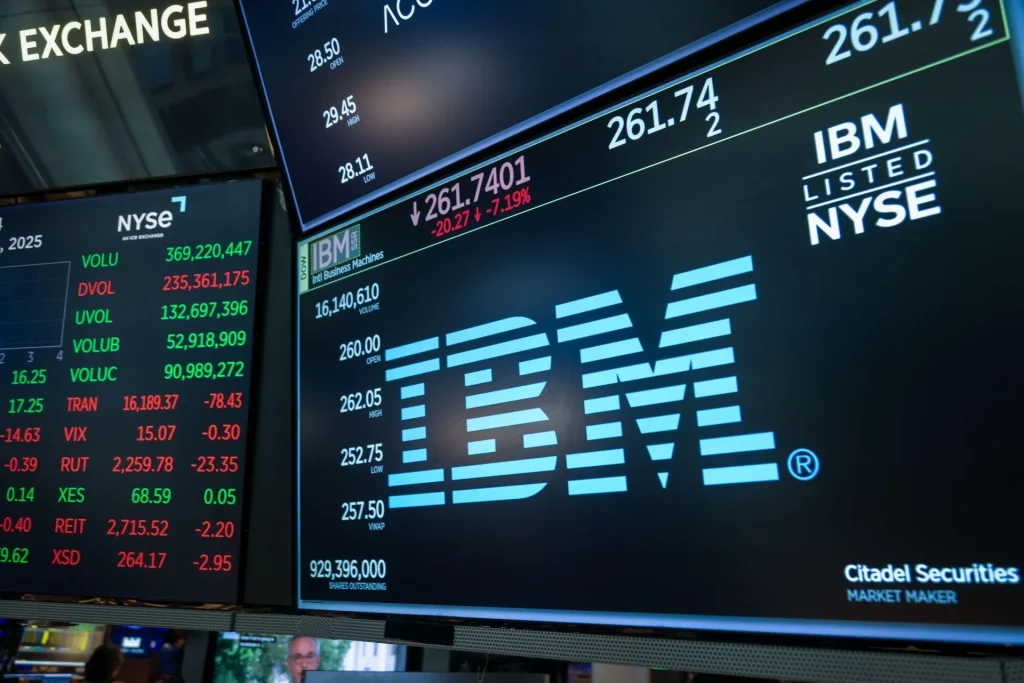SHARES of International Business Machines declined the most since April 2024 after the company reported weaker-than-expected sales in its closely watched software segment disappointing investors who have grown increasingly optimistic about the business.
Second-quarter software unit sales increased 10 per cent to US$7.39 billion, the company said in a statement on Wednesday, slightly below analysts’ average estimate of US$7.49 billion. The company’s consulting business, which has been experiencing a growth slump, generated a revenue bump of 3 per cent to US$5.31 billion.
Investors have been enthusiastic about IBM’s software business and the potential for future growth from artificial intelligence tools and quantum computing.
The company’s management has heralded software and services as the path to rejuvenation since the 1990s. However, only recently under chief executive officer Arvind Krishna has the approach really begun to materialise, with software now more than 40 per cent of the company’s annual revenue.
Bookings for the AI business have exceeded US$7.5 billion since mid-2023, the Armonk, New York-based company said. That is up from the US$6 billion IBM disclosed during its last quarterly earnings report in April.
About 80 per cent of the bookings come from the consulting unit, with the rest from software.

Start and end each day with the latest news stories and analyses delivered straight to your inbox.
The shares dropped 7.6 per cent to US$260.51 at the close on Thursday in New York. The stock has gained 19 per cent this year, outpacing many technology peers.
Overall, revenue increased 8 per cent to US$17 billion in the period ended June 30, the company said Wednesday in a statement. Analysts, on average, estimated US$16.6 billion.
Much of that performance was due to Big Blue’s infrastructure unit. Sales in that division gained 14 per cent to US$4.14 billion, beating the US$3.66 billion anticipated by Wall Street.
This is the strongest initial launch of a mainframe product in IBM’s history, chief financial officer Jim Kavanaugh said in an interview. Demand is driven by large enterprises, particularly in the finance and retail industries, he said.
Despite the top line strength, investors are likely to question how durable IBM’s software growth is in the second half of the year, wrote Amit Daryanani, an analyst at Evercore ISI.
On a call with analysts after the results were released, Kavanaugh said that Red Hat software sales should continue growing in the mid-teens. The group, which was acquired in 2019, posted 16 per cent growth in the second quarter.
Profit, excluding some items, was US$2.80 per share, compared with the average estimate of US$2.62. Kavanaugh said IBM is targeting steeper cost reductions, which is helping improve margins.
Technology vendors who sell to the US government have been anxious about the impact of cost cuts under the Trump administration. Kavanaugh said that some of IBM’s federal contracts that were previously paused have been reinstated and no new contracts have been affected.
IBM maintained its annual sales forecast of at least 5 per cent growth in constant currency. Free cash flow is projected to exceed US$13.5 billion, in line with analysts’ estimates. BLOOMBERG

